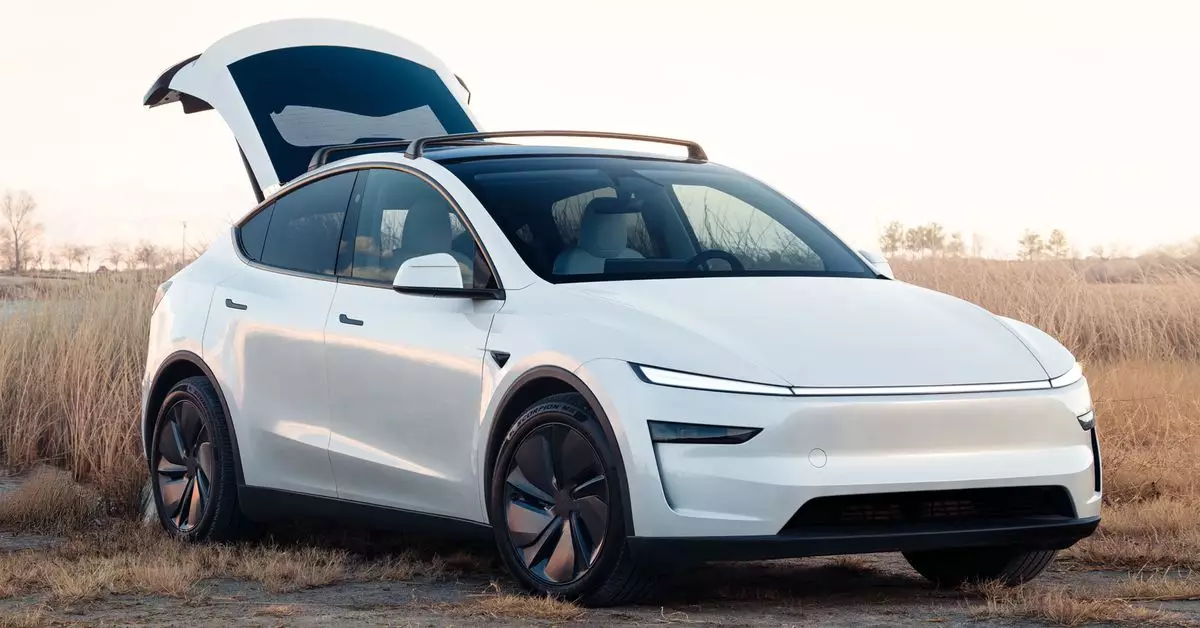In a fast-paced electric vehicle market, Tesla continues to make strides with its latest Model Y offering, launching a refreshed version that is already attracting interest in the Americas and Europe. This rollout comes shortly after the introduction of the “Juniper” Model Y in China and neighboring regions. While the new design and features appear striking, there are underlying challenges that could impact Tesla’s reputation and sales performance.
Tesla’s decision to unveil the Launch Series of the Model Y is a bold move aimed at capturing both existing and new customers with a fully-loaded vehicle. Priced at $59,990, the Launch Series promises advanced features such as Full Self-Driving capabilities and Acceleration Boost. These inclusions make the new Model Y a strong contender among electric SUVs, but Tesla must ensure that affordability does not become a barrier for potential buyers.
The recently designed features include refreshed exterior lighting and an updated interior, which now boasts an 8-inch touchscreen for rear passengers. This move signifies Tesla’s attention to enhancing the passenger experience, an aspect that is often overshadowed by its autonomous technology focus. This integration of technology aims to improve overall satisfaction and address the demands of families who view the SUV as more than just a mode of transportation.
The upgrades in the Model Y are noteworthy. Tesla has introduced a new sound system and enhanced suspension, as well as a turn signal stalk that could articulate a shift back toward more traditional vehicle controls. This design choice may resonate with long-time drivers who prefer more tactile interactions compared to the touch-based systems present in recent models.
Furthermore, the New Model Y asserts a 320-mile range, edging out the previous version’s 311 EPA estimate, although it is still unverified by the EPA. The performance boasts an impressive 0-60 mph in just 4.1 seconds, a significant improvement over the older model’s 4.8 seconds. Despite these enhancements, Tesla opted to reduce the top speed from 135 mph to 125 mph. This decision might not be critical for family-oriented consumers, but it does raise questions about Tesla’s performance image in a highly competitive market.
However, the excitement surrounding the Launch Series comes amid notable challenges for Tesla. The company recently reported its first year-over-year decline in sales, a disconcerting trend that speaks to shifting market dynamics. Despite the introduction of the upgraded Model Y, its impact on sales could be tempered by the lingering concerns surrounding Tesla’s brand reputation.
Many consumers are questioning whether new features and updated designs can outweigh concerns related to safety, quality control, and customer service. The fact that Tesla is simultaneously offering its older version of the Model Y at reduced prices may indicate a response to potential reluctance from buyers to invest in the new model without clear differentiation.
As the new Model Y is set to begin deliveries in March 2024, the challenge lies in Tesla’s ability to translate technological improvements into satisfying customer experiences. While the launch of this revamped model indicates a focus on innovation, it remains to be seen whether such changes will effectively restore consumer confidence and boost sales.
In a world where electric vehicle options are expanding rapidly, Tesla must leverage not only technological advancements but also address the broader consumer sentiment surrounding its brand. The company’s success will hinge on finding a delicate balance between innovation, pricing, and customer satisfaction in an increasingly competitive electric vehicle landscape.
Ultimately, the refreshed Model Y serves as a critical juncture for Tesla, reflecting both promise and peril in an industry that demands continuous evolution and responsiveness to consumer needs. It’s more than a vehicle; it’s a litmus test for Tesla’s standing in a market that is continuously evolving and expanding.

